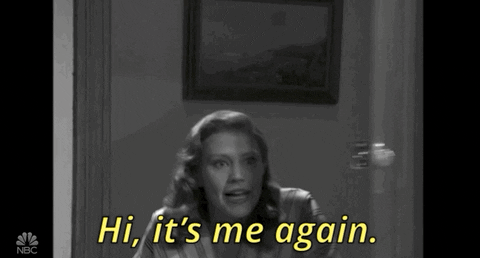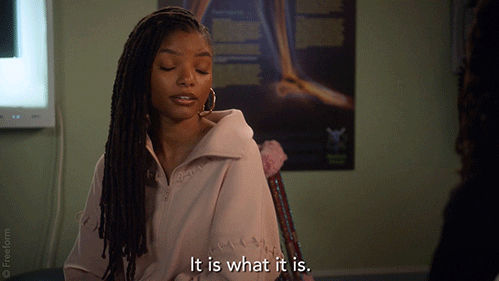
Rachel Cusk’s ‘Outline’ trilogy is without question a great literary achievement. I adored the first two books in the series—‘Outline’ and ‘Transit’—but was left wanting more from the final installment, this Sunday’s selection, ‘Kudos’:

Cusk tells this story (as she has throughout the trilogy) through interactions her protagonist, an author named Faye, has with people she encounters on her way to a conference in a European country that other reviewers have said is a stand-in for Portugal. These scenes are composed mostly of monologues by Faye’s interlocutors; she is rarely heard herself. There is little plot and not a lot of action, but the sum of the scenes form something like a 232-page subtweet about the ennui of middle age, what shenanigans men get away with in divorce and the existential dread women can feel about parenting. Faye’s conversations are revelatory about gender roles and relationships, but at times they teeter on becoming well-written philosophy lectures. Still, there were moments of humor and indelible imagery. For example, I loved how Cusk pillories male behavior. In one scene, a male journalist begins to interview Faye with a long-winded speech in anticipation of his first question, and when he is finally ready to ask it, the interview time has run out. The most vivid scene comes at the end. I don’t want to give it away, but I have thought about it a lot since I finished ‘Kudos’ because it so perfectly captures what the book is about. Also it is gross. I’m like:

Cusk’s earlier books in this series are wonderfully depressing. I love how they capture life after you turn 40, and how they can be cathartic and invigorating. But I didn’t experience the same jolt from ‘Kudos’ because it felt too similar to the previous works, like I had read this book before. I wanted to hear more from Faye this time, but as each scene passed, this book became yet another volume of her listening to people talk. I couldn’t shake thinking:

Even so, ‘Kudos’ has given me a lot to think about. For example, in the opening scene, Faye sits next to a man on a plane. He describes how his family has gone on vacation ahead of him while he stayed behind to care for their ailing dog. Even though his wife and children had wanted to be there at the animal’s end, he put the dog down alone because he wanted to experience that pain in isolation, similarly to how his wife sent him out of the hospital room when she was giving birth. After he buries the dog in the garden, he cleans up and heads straight to the airport. What am I supposed to take from this? Is this character equating the physical pain of childbirth to the emotional anguish of the loss of a pet? Are we to understand instead that we all suffer alone? Maybe we’re meant to accept the things in life we can’t change, like:

Maybe I missed the point entirely. Either way, even though I didn’t love this book as much as the previous two, I still think it’s a good book and that you should read it. If you haven’t read her other books, you can still read ‘Kudos’ and enjoy it on its own.
How it begins:
The man next to me on the plane was so tall he couldn’t fit in his seat. His elbows jutted out over the armrests and his knees were jammed against the seat in front, so that the person in it glanced around in irritation every time he moved. The man twisted, trying to cross and uncross his legs, and inadvertently kicked the person to his right.
‘Sorry,’ he said.
He sat motionless for a few minutes, breathing deeply through his nostrils with his hands clenched in his lap, but before long he became restless and tried to move his legs again so that the whole bank of seats in front of him was jolted back and forth. Finally I asked him if he wanted to change seats, since mine was on the aisle, and he accepted with alacrity, as if I had offered him a business opportunity.
‘Usually I travel in executive class,’ he explained, while we got up and changed places. ‘There’s a lot more legroom.’
He stretched out into the aisle and his head fell against the back of the seat in relief.
‘Thank you very much,’ he said.
The plane began to move slowly out over the tarmac. My neighbour gave a contented sigh and appeared almost instantly to fall asleep. An air hostess came up the aisle and stopped at his legs.
‘Sir?’ she said. ‘Sir?’
He jerked awake and folded himself awkwardly back into the narrow space in front so that she could pass. The plane paused for a few minutes and then lurched forward and then paused again. Through the window a queue of planes could be seen ahead, waiting their turn. The man’s head began to nod and soon his legs were splayed once more across the aisle. The air hostess returned.
‘Sir?’ she said. ‘We need to keep the aisle clear for take-off.’
He sat up.
‘Sorry,’ he said.
My rating:

‘Kudos’ by Rachel Cusk was published in 2018 by Picador. 232 pages. $17 at Books are Magic.
Three for the road: More things worth your time.
Read this: For those of you who want to read more about Rachel Cusk, The New York Review of Books recently published this piece about her by Clair Wills. I love the opening line: ‘Rachel Cusk is fascinated by silence.’
Do this: Author Nicole Chung discusses her new book ‘All You Can Ever Know’ at the Strand Book Store with author Min Jin Lee on Oct. 22 at 7 p.m. Chung’s book, where she unravels the mystery surrounding her adoption, sounds really interesting. And longtime readers of BoG know that I absolutely adore Min Jin Lee’s ‘Pachinko.’
Do this, too: We should all support local independent book stores. Here in Brooklyn, Greenlight Bookstore on Fulton Street in Fort Greene is celebrating its 10th anniversary with ‘a multi-part artistic feast’. Details are here.

In two weeks you’ll get a review of ‘In the Distance’ by Hernan Diaz. Also in the queue are ‘The Great Believers’ by Rebecca Makkai and ‘Rebecca’ by Daphne du Maurier, among others. Books on GIF will publish weekly during November with a special series called ‘Novella November.’
In case you missed it: Books on GIF #113 featured ‘My Year of Rest and Relaxation’ by Ottessa Moshfegh.
Shoot me an email if there’s a bestseller, a classic or a forgotten gem you want reviewed.
Follow me on Twitter and Instagram.
Thanks for reading, and thanks especially to Donna for editing this review!
Until next time,

MPV



